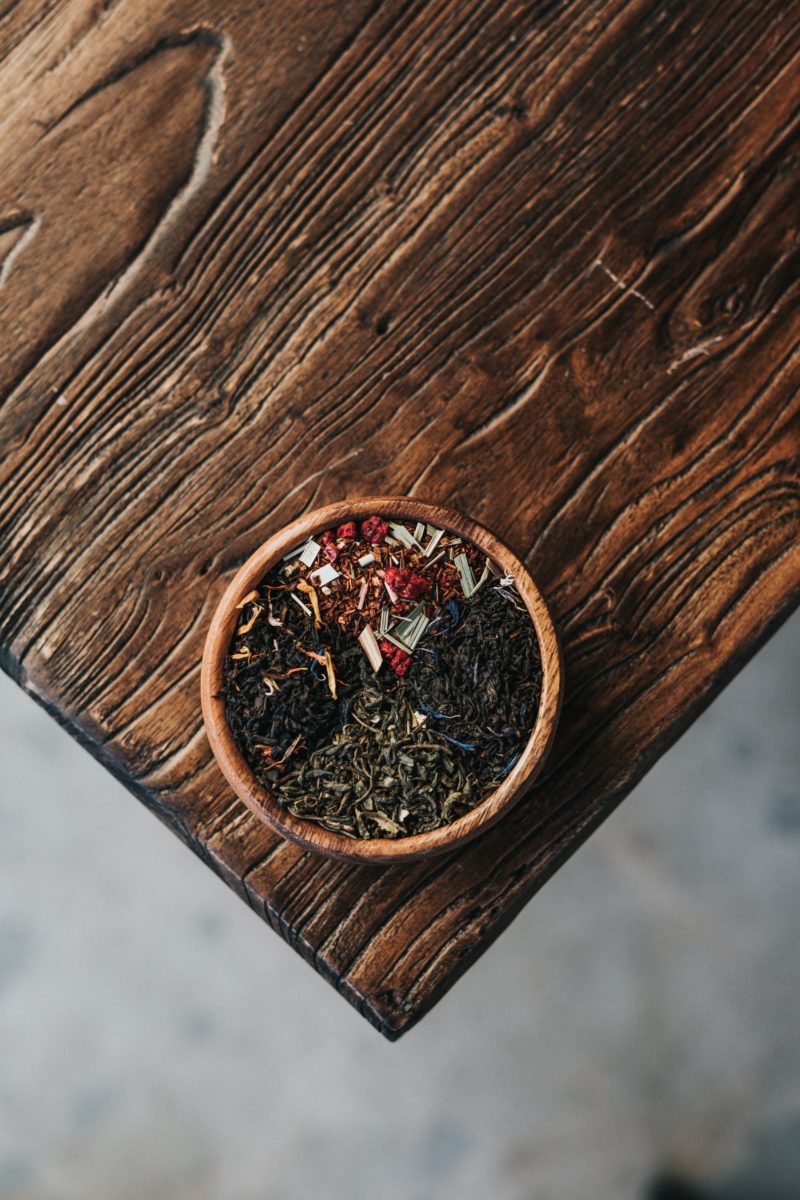Ashwagandha, also known as Withania somnifera, is a wonderful herb which can benefit many people with thyroid and autoimmune thyroid conditions. It seems to be more commonly recommended to people with hypothyroid conditions, but it can also benefit some people with hyperthyroidism and Graves’ Disease. In this article I’m going to discuss some of the benefits of taking this herb, and while I usually list the adverse effects and contraindications of herbs when doing these “herbal spotlights”, upon reading this article you’ll discover that Ashwagandha is in most cases a very safe herb to take.
Ashwagandha has both tonic and adaptogenic properties, and so it can be used as a general tonic to increase energy, improve overall health and longevity, and prevent disease in athletes, the elderly, and during pregnancy (1). Licorice is another example of a tonic herb. However, Ashwagandha is also an adaptogenic herb (2), which means that it helps the body adapt to stress. Eleuthero is another adaptogenic herb that I have written about in the past. Rhodiola is another adaptogenic herb. As I’ll discuss below, Ashwagandha also has immune-modulating properties, is also anti-inflammatory, and can affect thyroid function.
Adrenal Health. This is one of the most common reasons why I recommend Ashwagandha to some of my patients with thyroid and autoimmune thyroid conditions. Whether someone has hypothyroidism or Hashimoto’s Thyroiditis, or hyperthyroidism and Graves’ Disease, Ashwagandha can provide general support to the adrenal glands. In fact, this herb has been documented in Aruyreveda and Unani medicine system for its stress-combating properties (3). Studies have demonstrated that Ashwagandha can lower elevated cortisol levels (4). However, Ashwagandha can also be used in people with depressed cortisol levels. Another study involving mice showed that Ashwagandha weakened chronic stress induced perturbations (significant hyperglycemia, glucose intolerance, increase in plasma corticosterone levels, etc.), and concluded that this herb has significant antistress adaptogenic activity (5).
Immune System Function. Ashwagandha also helps to improve the health of the immune system. And there have been numerous studies which demonstrate this. One study looked at the effect of Withania somnifera on the cellular immune response, and administration of this herb was found to enhance the proliferation of lymphocytes, bone marrow cells, and thymocytes (6). This same study found that natural killer cell activity was enhanced. In some cases taking Ashwagandha can help with a depressed white blood cell count (7). Another study looked at the immune modulating effects of Ashwagandha (8), and found that it might help with the treatment of infectious agents, adjuvant therapy against tumor cells, and effects on hypersensitivity and inappropriate immune balance. Another study showed that Ashwagandha possesses anti-inflammatory, antitumor, antistress, antioxidant, immunomodulatory, hemopoietic, and rejuvenating properties (9). The same study showed that this herb also appears to exert a positive influence on the endocrine, cardiopulmonary, and central nervous systems.
Thyroid Health. Ashwagandha can also provide some direct benefits to the thyroid gland. When Ashwagandha is combined with the herb Bladderwrack it can sometimes help to stimulate the production of thyroid hormone. Of course the problem is that many people who have thyroid and autoimmune thyroid conditions are understandably cautious about taking Bladderwrack, since it contains iodine. But even in people with Hashimoto’s Thyroiditis the combination of Ashwagandha and Bladderwrack usually doesn’t seem to cause problems, especially when adequate antioxidants are taken. Some studies in mice have shown that Ashwagandha alone can stimulate the production of T3 and T4 (10). Another study showed that Ashwagandha could enhance only serum T4 concentration (11). This might suggest that people with hyperthyroid conditions shouldn’t take Ashwagandha, but I’ve recommended this herb to people with hyperthyroidism and Graves’ Disease without a problem.
Other Benefits of Ashwagandha. Ashwagandha also seems to help to regulate HP-Axis dysfunction in some people. Remember that thyroid hormone, as well as the hormones of the adrenals (cortisol, DHEA, etc.) are regulated by the pituitary gland, which in turn is regulated by the hypothalamus. But sometimes there are problems with the communication between the hypothalamus and pituitary gland. And in some cases taking Ashwagandha can help with this. Some studies also have shown that Ashwagandha exhibited an antidepressant effect (12), and also stated that the investigations support the use of this herb as a mood stabilizer in clinical conditions of anxiety and depression. Another study demonstrated that Ashwagandha possesses cardiotropic, cardioprotective, and anticoagulant properties (13). Yet another study showed that Ashwagandha improved sperm count and motility, and that the levels of testosterone, LH, FSH, and prolactin were also reversed in infertile subjects after treatment with this herb (14).
Contraindications and Interactions
Ashwagandha is one of the safest herbs. Kerry Bone is an herbalist with over 25 years of experience, and in his book “Principles and Practice of Phytotherapy”, he states that there are no known contraindications, interactions, or side effects. With that being said, I believe that any herb can potentially cause problems if not taken appropriately, and in my experience I have come across a couple of patients who seemed to be sensitive to Ashwagandha. But with that being said, most people tolerate Ashwagandha well, and very rarely have I encountered any problems when recommending this herb.
According to Kerry Bone, Ashwagandha is considered to be safe when taken during pregnancy, as well as being compatible with breastfeeding. It is also a common herb used in children. As usual, I would recommend consulting with a competent healthcare professional, rather than taking Ashwagandha or any herb on your own. And this is especially true with special situations such as pregnancy, lactation, or when giving these herbs to children.
So while there are many herbs which can be beneficial to people with thyroid and autoimmune thyroid conditions, Ashwagandha is probably one of the most beneficial herbs due to both its effectiveness and safety. Although I don’t have all of my patients take this herb, I have recommended it to many patients with both hypothyroid and hyperthyroid conditions. With that being said, taking Ashwagandha or any other herb will work best when at the same time you’re eating well, getting sufficient sleep, and trying to do a good job of managing your stress. The goal of these “herbal spotlights” isn’t to suggest that taking herbs alone can restore someone’s health back to normal, but instead is to show you how they can benefit your health when combined with other methods.
Source: https://www.naturalendocrinesolutions.com/articles/ashwagandha-and-thyroid-health
What's the REAL problem with Ashwagandha?
Eventhough Ashwagandha comes with a laundry list of incredible health benefits:
- Supports Healthy Thyroid Function
- Promotes a Calm State of Mind
- Improves Mood and Energy
- Boosts Memory and Supports Brain Health
- Strengthen Immune Function
It has *one major flaw*.
The major flaw of Ashwagandha is bioavailability.
The body has a hard time absorbing Ashwagandha Powder, which makes bioavailability a HUGE issue! Bioavailability is the amount of a substance that enters your bloodstream. More bioavailability means you actually get the health benefits you’re looking for. But less bioavailability? That means you’re wasting money.
Essence Roots has discovered a unique, yet simple way to make Ashwagandha more bioavailable than ever.
Along with giving us superstar nutrients like ashwagandha, Mother Nature also provides us with helper nutrients. These helper nutrients take a good thing and make it even better. Scientists call these Bioavailability Enhancers, and new research points to piperine as being the most effective on the planet. Ultra Ashwagandha comes in a veggie capsule packed full of piperine, making it the most bioavailable Ashwagandha money can buy!
Special Offer
Today Ultra Ashwagandha by Essence Roots is running a 50% off promotion. The more bottles you buy, the more discount you get. So don’t wait until its too late, take advantage of this incredible offer now. Don’t forget to come back and let us know about your results!
Simply click on the link bellow to claim your deal.

This is a one time purchase with no hidden additional cost or obligations.



